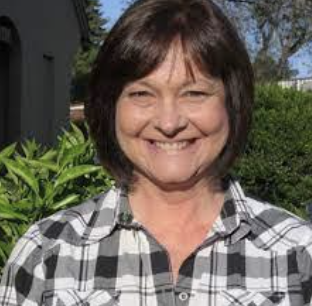There are many wonderful things about teaching at American Jewish University. One of the aspects that I appreciate as an instructor is the ability to frame the learning for my students through Jewish texts. Each time we meet, I begin the class with a Jewish text. These are specifically chosen to amplify the subject matter of the particular class. Sometimes it’s from Pirkei Avot; sometimes it’s Talmud or Torah, but at the beginning of each class we devote time to the study Jewish texts. The students learn in chevruta, a traditional approach, so that they can get to know each other on a more personal level, which in turn builds our classroom community. Not all of my students are Jewish, not all are fluent in Hebrew, so to make the readings accessible we use an English translation as well. The students enjoy looking at our subject matter through Jewish tradition, wrestling with the passages to find the meaning for themselves as adults, and for themselves as educators in Jewish schools. Each text is accompanied by a series of short questions for them to consider as they discuss. The first question is always, “What does this text mean to you?” to give the educators a chance to explore the text for themselves. The questions that follow are to help them think more deeply about the text and how it pertains to their work as Early Childhood Educators in Jewish schools.
For example, in the first class of EDU 313: Partnering with Families and Community, we used this text from Deuteronomy 5:16: Honor your father and your mother, as your G-d has commanded you, that you may long endure, and that you may fare well, in the land that your G-d is assigning to you.
The questions for them to consider were as follows:
- What does this text mean to you?
- Why would honoring your parents lead to “enduring and faring well in the land that G-d gave you”?
- Does the importance of honoring your own parents mean that you should honor the parents of your class? Why or why not?
In our course, EDU 301: Child Growth and Development, we used this text to introduce the class:
Children are regarded as the hope of the future in every society, yet among the Jewish people this concept is enhanced by the view that children are a Divine trust and guarantors of the future.
The Book of Psalms (127 v.3) declares “children are an inheritance from the Lord”
Rabbi Meir said: “When the Children of Israel stood at Mount Sinai to receive the Divine Revelation, the Holy One, blessed be G-d, said to them: “Bring me good guarantors that you will keep my Revelation and then I will give it to you.’
They replied: ‘Sovereign of the Universe, our ancestors will be our guarantors.’
Said G-d them: ‘Your guarantors need guarantors themselves, for they have not been without fault.’
They answered, ‘Our prophets will be our guarantors.’
G-d replied: ‘They have also not been without fault.’
Then the Israelites said: ‘Our children will be our guarantors.’
To which G-d replied: ‘In truth these are good guarantors. For their sake I will give it to you.’” (Shir ha Shirim Rabbah, 1:4)
The questions for this text were:
- What do you think this text mean to you?
- Why do you think children are the “good guarantors”?
- What does this text mean to you in your work as an educator in a Jewish Preschool?
And finally, in EDU 620: Curriculum in Jewish Early Childhood course one of the texts we used to introduce the subject was:
Rabbi Chanina said, “I have learned much from my teachers, more from my colleagues and most from students.” The Talmud (Taanit 7a)
The questions for consideration were:
- What does this text mean to you?
- What does this text tell us about the idea of “curriculum”?
- What does this text mean to us as we plan the curriculum in our Jewish schools?
Making Jewish texts accessible for Early Childhood Educators in Jewish schools opens a whole new aspect of looking at their everyday work. With the depth of Jewish tradition behind them, and they can draw from their chavruta study in their work with the children and families in their care. This elevates the occupation of Early Childhood Educators in Jewish and reminds them of the holiness of our work in Jewish preschools.

